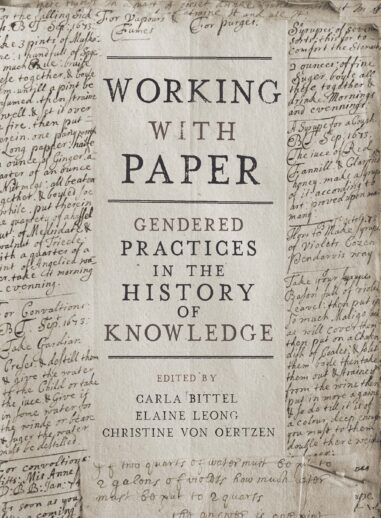Working with Paper builds on a growing interest in the materials of science by exploring the gendered uses and meanings of paper tools and technologies, considering how notions of gender impacted paper practices and in turn how paper may have structured knowledge about gender. Through a series of dynamic investigations covering Europe and North America and spanning the early modern period to the twentieth century, this volume breaks new ground by examining material histories of paper and the gendered worlds that made them. Contributors explore diverse uses of paper—from healing to phrenological analysis to model making to data processing—which often occurred in highly gendered, yet seemingly divergent spaces, such as laboratories and kitchens, court rooms and boutiques, ladies’ chambers and artisanal workshops, foundling houses and colonial hospitals, and college gymnasiums and state office buildings. Together, they reveal how notions of masculinity and femininity became embedded in and expressed through the materials of daily life. Working with Paper uncovers the intricate negotiations of power and difference underlying epistemic practices, forging a material history of knowledge in which quotidian and scholarly practices are intimately linked.




